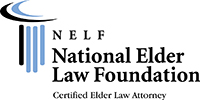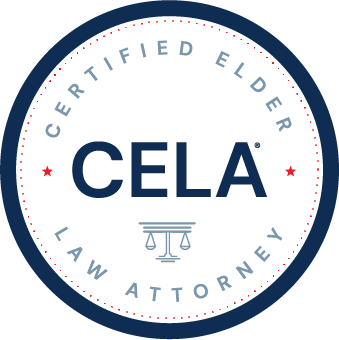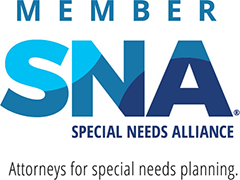Under Sec. 213, a taxpayer is allowed a deduction for medical expenses paid during the taxable year to the extent that the expenses exceed 7.5% of the taxpayer's adjusted gross income. The medical expense deduction applies only to those expenses incurred by the taxpayer, the taxpayer's spouse, or a dependent. In addition, the deduction applies only to those expenses not compensated for by insurance or otherwise.
Medical expenses include qualified long-term care services. Qualified long-term care services are defined in new I.R.C. §7702B as "necessary diagnostic, preventative, therapeutic, curing, treating, mitigating and rehabilitative services, and maintenance and personal care services, which:
- are required by a chronically ill individual, and
- are provided pursuant to a plan of care prescribed by a licensed health care practitioner."
A chronically-ill individual is a person certified by a licensed health care provider as being unable to perform two activities of daily living for a period of at least 90 days. The activities of daily living are defined to mean "eating, toileting, transferring, bathing, dressing and continence." The Conference Report notes "It is intended than an individual who is physically able, but has a cognitive impairment such as Alzheimer's disease, or other form of irreversible loss of mental capacity, be treated similarly to a person who is unable to perform at least two activities of daily living."
Expenditures for medicine and drugs, including insulin, are deductible as a medical expense only if prescribed a physician.
Personal care services are tax deductible, if provided pursuant to a plan of care prescribed by a licensed health care practitioner (i.e. physician, register nurse, geriatric care manager). Expenses must be primarily related to needed assistance for any of the disabilities for which the individual qualified as chronically ill or cognitively impaired. Examples include expenses related to a patient's dressing, grooming, and bathing, if an individual is unable to perform those functions without assistance. There is no deduction for what might be called "maid" services. This would include cooking and general cleaning.
Payments for qualified long-term care services provided by an individual do not qualify as paid for medical care if the service is provided by the spouse of the individual or by a relative, unless the spouse or relative is a licensed professional with respect to the services.
In addition certain nursing home costs are deductible. If an individual resides in a nursing facility because of his or her physical condition, and the availability of medical care is a principal reason for the placement, the entire cost of maintenance, including meals and lodging, is deductible. However, if an individual resides in a nursing home primarily for personal or family reasons, then only that portion of the cost, which is attributable to medical, or nursing care is deductible.
Capital Expenditures
Capital expenditures are deductible if they are medically necessary. However, the capital expenditure is deductible only to the extent that it exceeds any increase in the value of property. To the extent the purchase increases the value of an asset, the expenditure is nondeductible regardless of the degree of medical need. The IRS has published a list of home modifications that are deemed not to add to a home's value. Rev. Rul. 87-106, 1987-2 C.B. 67.
Personal Dependent
If a person pays for more than 50% of the support of a relative, and the relative in 2002 has less than $3,000 of gross income for the year and has not filed a joint tax return with his or her spouse, then the person paying the support may claim the relative as a dependent on the person's federal income tax return. For purposes of calculating the 50% requirement, tax-exempt interest, disability income and Social Security income or the relative is counted. However, for purposes of calculating the $3,000 of gross income, tax-exempt interest, disability income and Social Security income or the relative is not counted. If a person claims a relative as a personal exemption, the relative must not file a joint return. You can include medical expenses you paid for your dependent. For you to include these expenses, the person must have been your dependent either at the time the medical services were provided or at the time you paid the expenses. A person generally qualifies as your dependent for purposes of the medical expense deduction if both of the following requirements are met. 1. The person was a "qualifying child or "qualifying relative." 2. The person was a U.S. citizen or national or a resident of Mexico or Canada. See IRS Publication for definition of 502 for definition of "qualifying child" and "qualifying relative."
r.
Medical Deduction for Relative
A person can claim a medical deduction for medical expenses paid on behalf of an individual who qualifies as a depedent unless that person recivied gross income of $4,400 or more for 2022, the person filed a joint return, or the taxpayer or the taxpayer's spouse, if filing jointly, could be claimed as a depedent on someone elses tax return.
A taxpayer may deduct medical expesnes for a qualifying relative if the taxpayer provided more than half of the qualifying relative's support under a multiple support agreement. A multiple support agreement is used when two or more people provide more than half of the person's support, but no one alone provides more than half. Multiple Support Agreement Form 2120. All of the declarations must be attached to the return of the taxpayer claiming the dependency deduction.
If a child is paying the expense of the parent's nursing home from assets that the parent has transferred to the child, the child may be able to shelter a portion of the child's earned income by taking advantage of the medical deduction for the parent's nursing home expense.
Call (720) 200-4025 now or email us to find out how our attorneys can help with your medical expense tax issues.












